II FORUM OF RECTORS OF HIGHER EDUCATION INSTITUTIONS OF POLAND AND UZBEKISTAN
April 25, 2025As part of the forum, a plenary session was held focusing on the opportunities for cooperation between universities in Poland and Uzbekistan under European Union programmes. Discussions addressed the current prospects, future potential, and effective practices in scientific and educational collaboration funded by the EU and Polish national institutions.
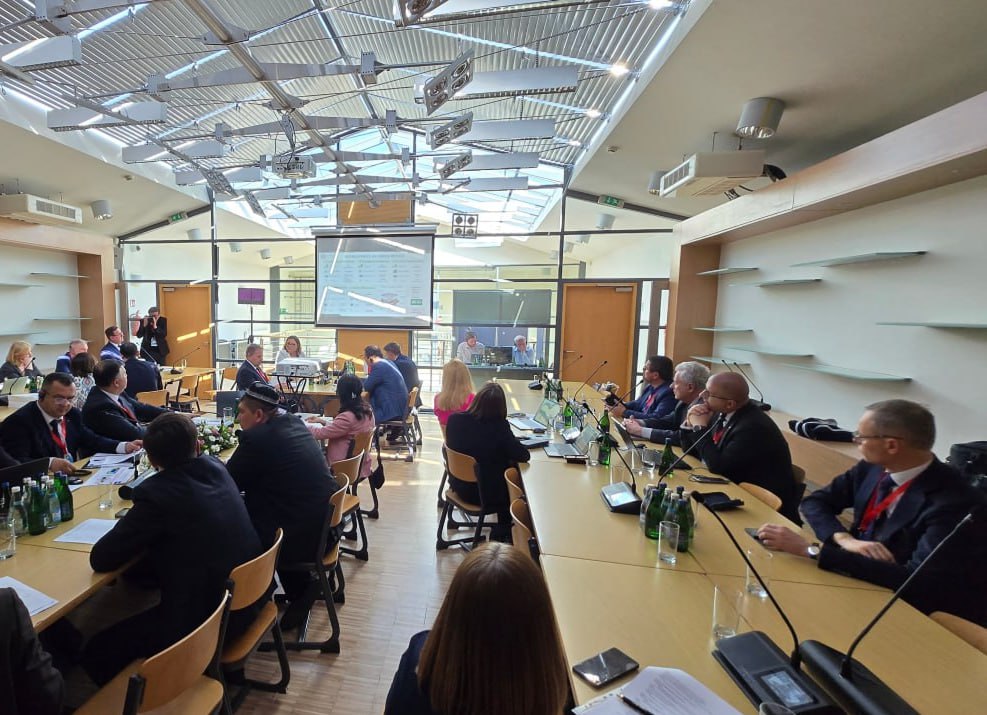
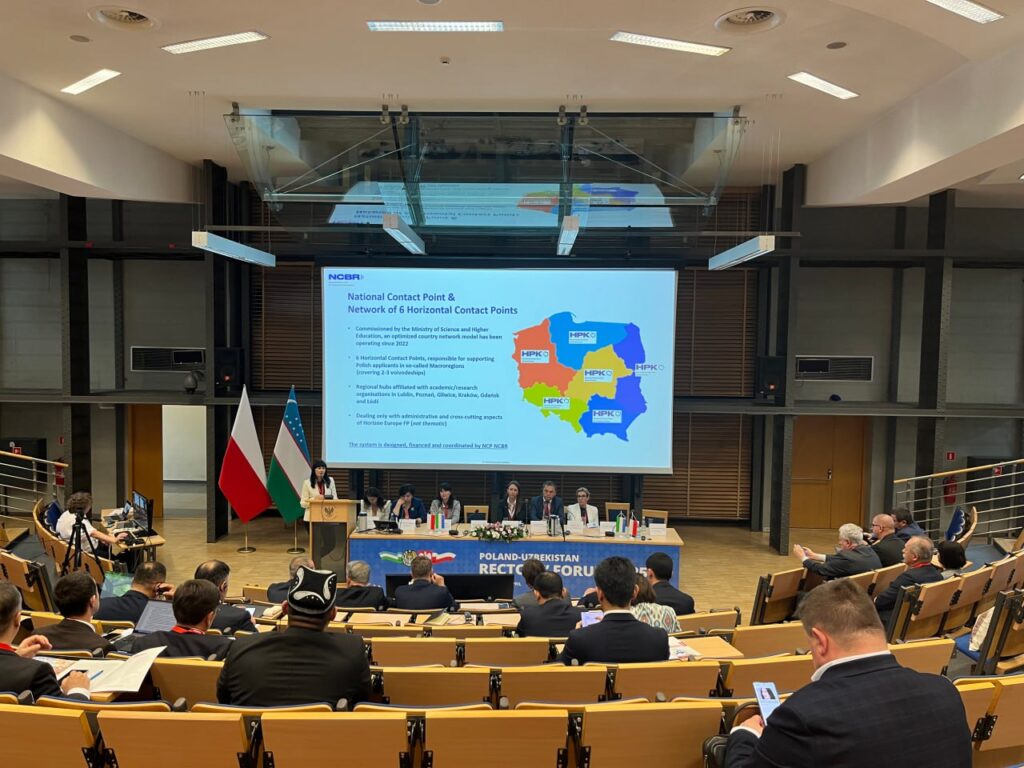
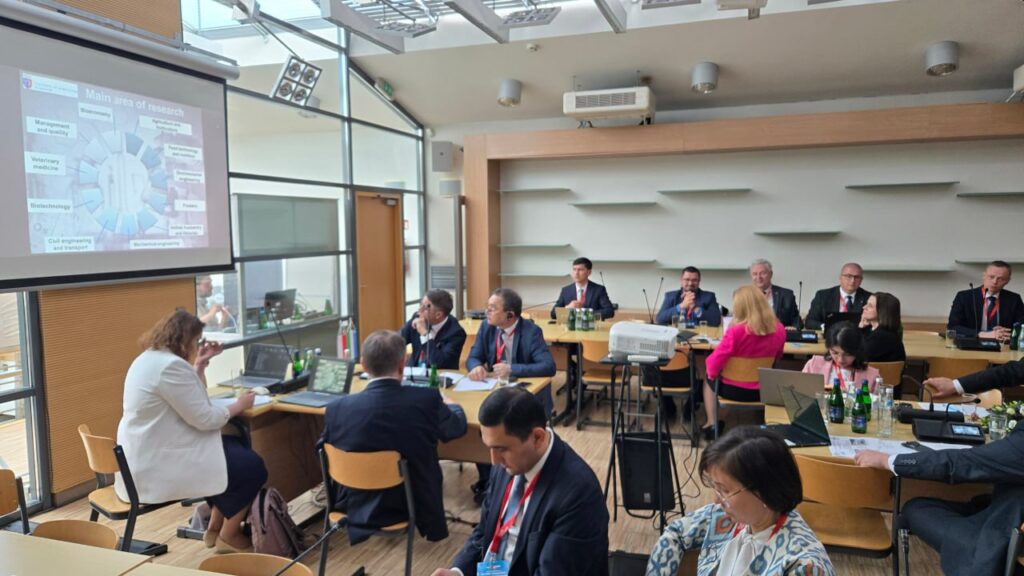
Special attention was given to cooperation areas implemented through international platforms such as Erasmus+, NAWA, Horizon Europe, FRSE, and NCBR.
Opening the event, Rector of Kozminski University, Professor Grzegorz Mazurek, emphasized the importance of dual degree programmes, noting their key role in strengthening academic ties between Poland and Uzbekistan.
Monika Zaremba, representative of the Polish National Agency for Academic Exchange (NAWA), provided detailed information about the agency’s five main programmes. She highlighted how these initiatives promote academic mobility, scientific internships, and institutional partnerships for both faculty and students.
Rector of the Tashkent Institute of Chemical Technology, Botir Usmonov, proposed initiatives for joint laboratories, master’s programmes, and research projects in the fields of chemistry and technology.
Jerzy Malachowski, representative of Poland’s National Centre for Research and Development (NCBR), shared the country’s experience in research funding, emphasizing the opportunity for Uzbek universities to participate in large-scale programmes such as Horizon Europe and Smart Growth.
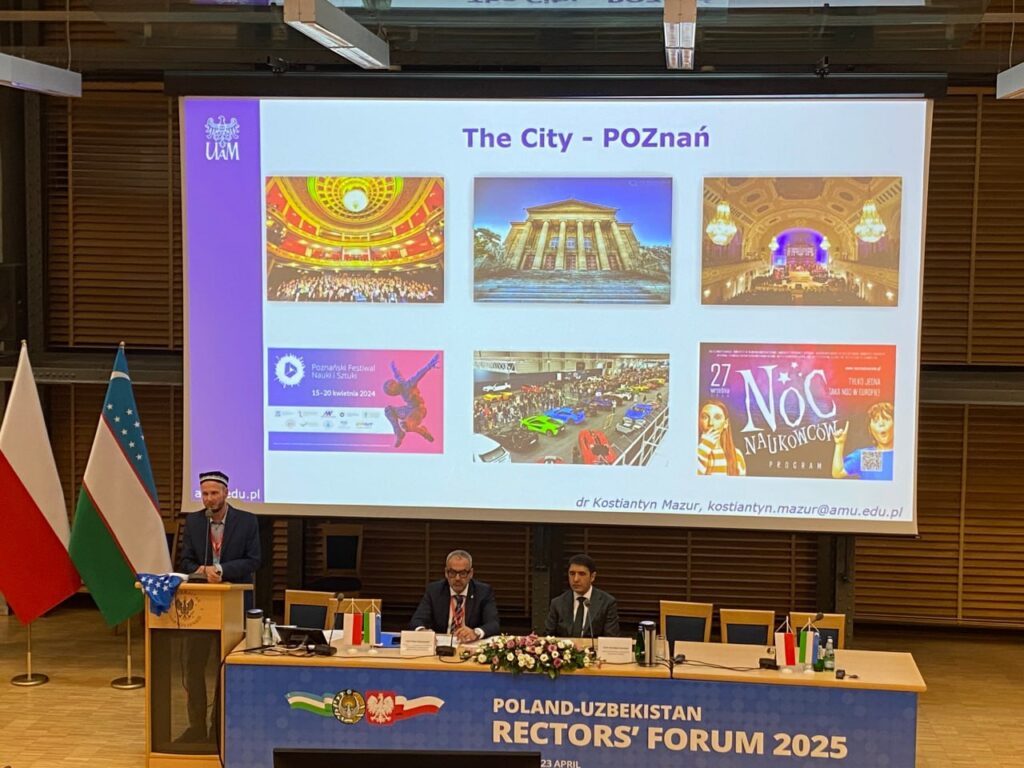
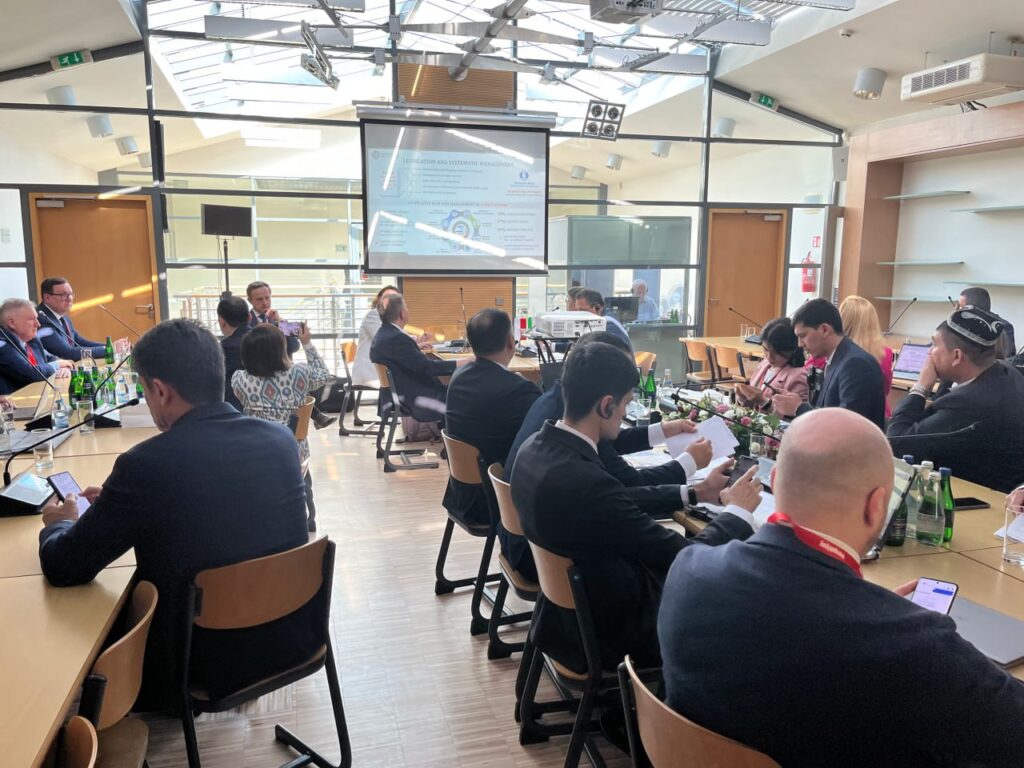
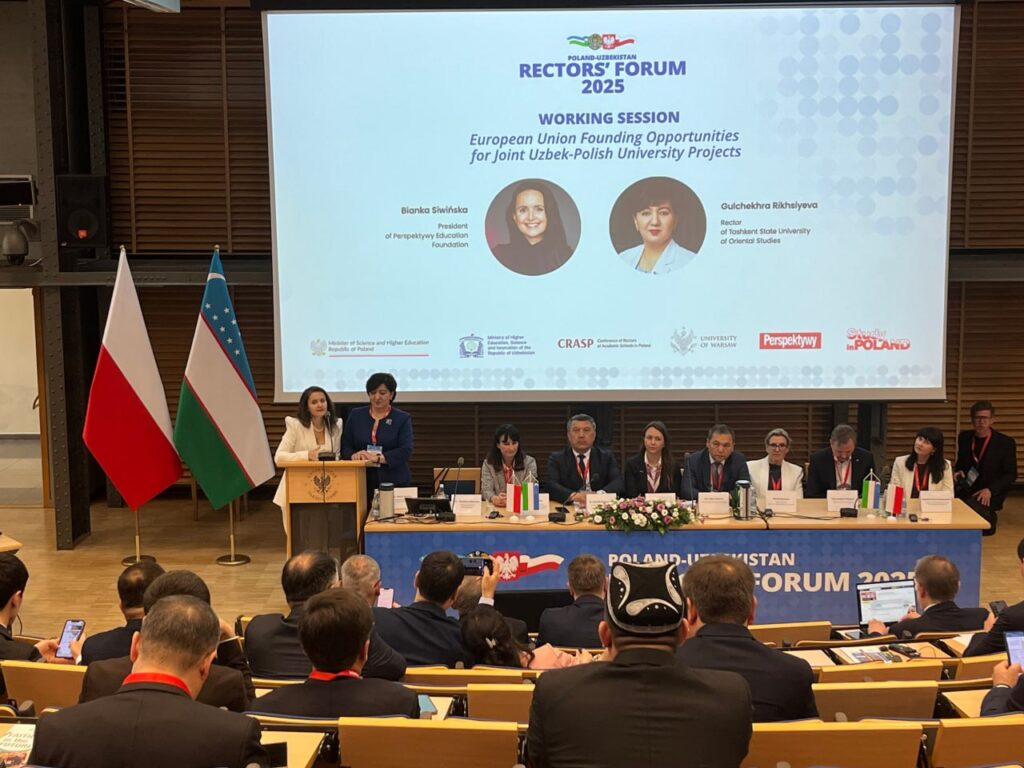
Rector of Tashkent State Agrarian University, Narzullo Oblomuradov, proposed creating opportunities for Uzbek students in agriculture to undertake paid internships at leading Polish agricultural and industrial companies. These internships would allow students to gain firsthand experience with advanced technologies and modern workflows.
In a dedicated session with rectors from universities specializing in technology, natural sciences, and medicine, constructive dialogue was held on solving global challenges through sustainable development, digital technology integration, and innovative approaches. Discussions were structured around six key areas:
• University-industry integration and collaboration mechanisms;
• Green transformation, ecological balance, and sustainable development;
• High technology and its application in socio-economic fields;
• Implementation of big data and digital technologies in healthcare;
• Innovative approaches and scientific research in biomedical fields.
In a subsequent session focused on the humanities, social sciences, and economics, participants discussed enhancing academic exchange through the NAWA programme, submitting joint grant proposals via Erasmus and Horizon, and organizing summer schools to promote gender equality and achieve the Sustainable Development Goals (SDGs).
Rector of the University of Journalism and Mass Communications of Uzbekistan, Professor Sherzodkhon Kudratkhoja, delivered a presentation titled “The Modern World: Uzbekistan’s Information Trends and Journalism.” In his speech, he addressed ongoing reforms to ensure transparency and security in the country’s information policy, as well as key steps being taken to improve journalism education.
Professor Piotr Rawluk, Vice-Rector of Adam Mickiewicz University, proposed launching joint doctoral programmes with Uzbek higher education institutions in engineering, natural, and social sciences. The proposal includes assigning Polish academic supervisors to Uzbek PhD candidates, holding dissertation defenses in Poland, and awarding joint academic degrees.
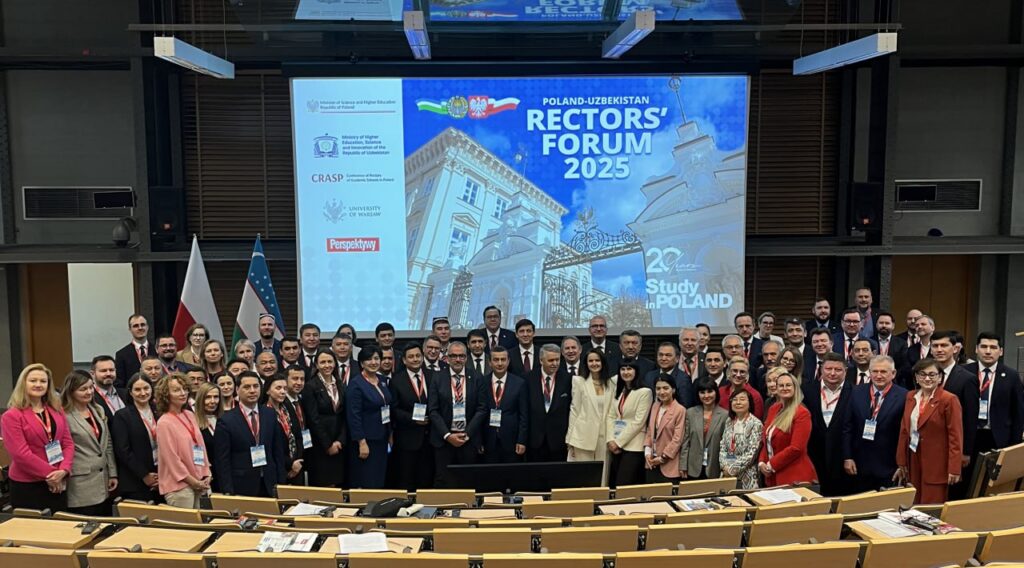
Concluding the forum, Komiljon Karimov, Rector of Westminster International University in Tashkent, noted a qualitative improvement in the level and substance of the discussions held during the event. He expressed gratitude to the Polish partners for their excellent organization and emphasized the growing relevance and practical significance of such international academic events.
At the end of the sessions, taking into account the proposed initiatives and ongoing projects, 37 COOPERATION AGREEMENTS were signed between universities in Poland and Uzbekistan in the fields of science, education, and innovation.

